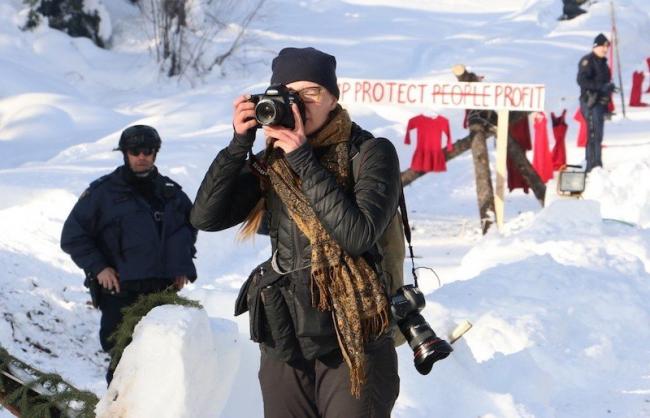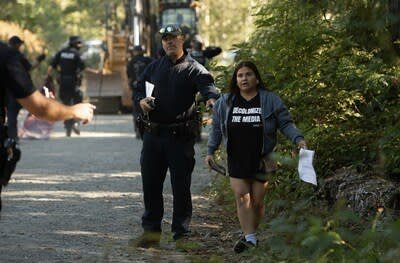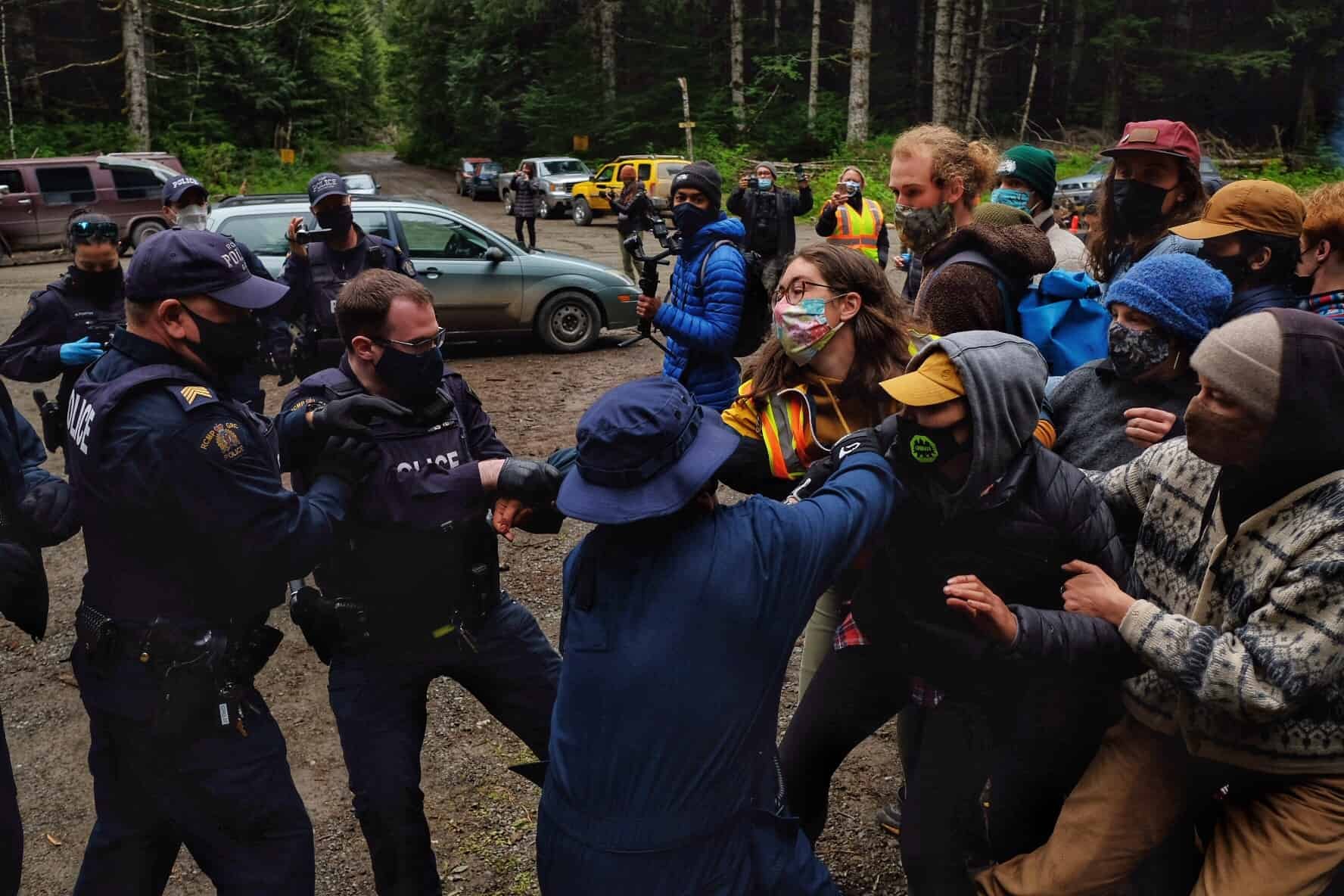Articles Menu

Jan. 2024
In recent years, Canada has witnessed a concerning pattern of violations against women journalists by law enforcement agencies, raising significant questions about press freedom and the protection of those reporting on critical issues. The Coalition For Women In Journalism and Women Press Freedom’s documentation exposes a disturbing trend where journalists, particularly women, have faced obstruction, arrest, harassment, and threats from the police. Journalist Brandi Morin, known for her coverage of Indigenous issues, has been a frequent target, facing arrests, harassment, and even criminal charges for her reporting on police interventions. Photojournalist Amber Bracken and several others have also experienced unjust actions, with the Royal Canadian Mounted Police (RCMP) challenging lawsuits and justifying arrests, thereby undermining the fundamental principles of a free press.
These incidents paint a troubling picture of the challenges journalists face in Canada when covering sensitive topics, particularly environmental and Indigenous demonstrations. Journalists face not only the physical dangers of reporting but also the threat of legal repercussions and intimidation from law enforcement.
It is apparent that the police in Canada have been allowed to benefit from a level of impunity when it comes to their violations of press freedom. The need for safeguarding press freedom and ensuring the rights of journalists is evident. The Coalition For Women In Journalism and Women Press Freedom calls for a critical examination of the relationship between the media and law enforcement in the country.
The CFWIJ and WPF has documented the following timeline of the police’s violations against women journalists.


October 5
August 15
A police officer grabs and threatens journalist Brandi Morin with arrest as she reports on a raid of an environmental blockade at Fairy Creek Watershed, on Pacheedaht territory.
Brandi Morin faces unauthorized surveillance bordering on harassment by the Royal Canadian Mounted Police (RCMP) while documenting militarized action against Indigenous land defenders in Wet'suwet'en territories.
Photojournalist Amber Bracken is arrested while reporting on the escalating situation at Gidimt’en camp in Wet’suwet’en territory. The RCMP’s transgressions at the protesters’ campsite reached a crescendo on November 19, with the Amber’s arrest along with several others, including documentary filmmaker Michael Toledano. In arresting journalists reporting on a crucial issue, the RCMP stood in blatant violation of the freedom of the press and the right to information.
CBC journalist Meghan Grant receives retaliatory threats from officers from Lethbridge Police Service for exposing misconduct within the police force. The threats came to light through a whistleblower, who revealed the nature of the discussions within police offices regarding the ongoing investigations. The whistleblower claims retaliatory action was being discussed against the journalist and the lawmaker due to their activism and reporting.
Journalists Alexa MacLean, Sarah Plowman and Zane Woodford asked to vacate the premises of the Horseshoe Park when they were covering the eviction of citizens who had taken shelter there. According to the updates they posted on their social media platforms, the police kept arriving in hoards to vacate the park despite those on the location presenting no threats.

September 16
Indigenous journalist Starla Myers is arrested by Ontario Provincial Police over her coverage of protests of land defenders in the 1492 Land Back Lane action reclaiming land along the Haldimand Tract

February 29
Melissa Cox, an American journalist and documentary filmmaker, is arrested by the RCMP. She is conditionally released after seven hours of detention. She was detained on an unceded Gitxsan territory in New Hazelton. Melissa was documenting a protest by indigenous people in Canada’s westernmost province.